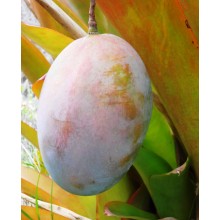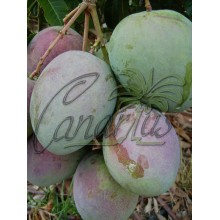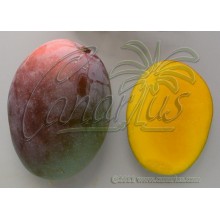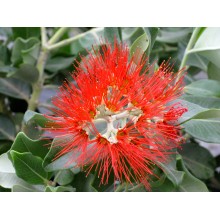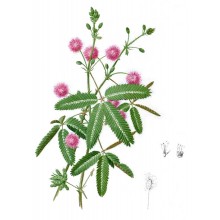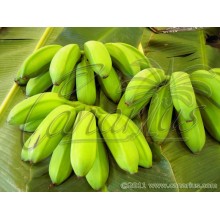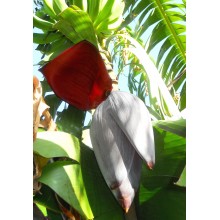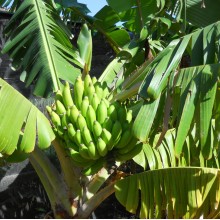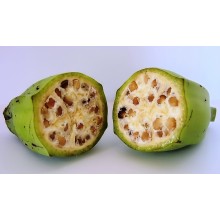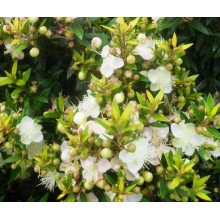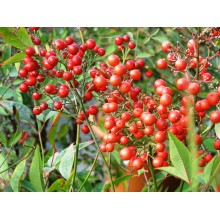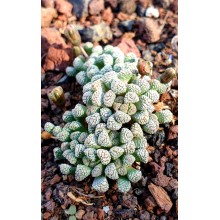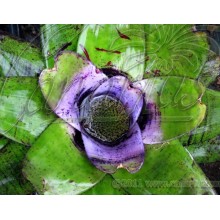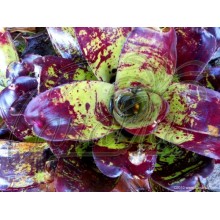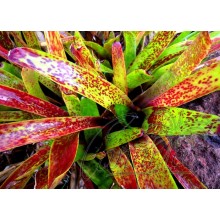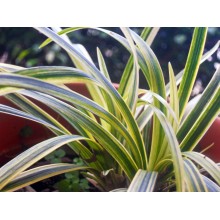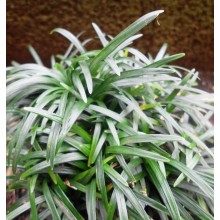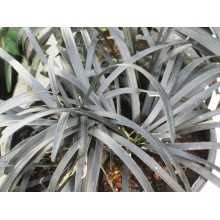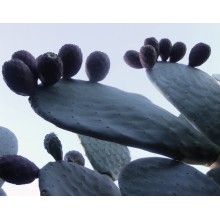Plantes résistantes au froid Il y a 317 produits.

Voici notre sélection de plantes qui peuvent supporter un certain froid. Certaines ne vont pas résister au froid et supporteront un gel léger, mais d'autres supporteront bien les gelée dans les climats froids. Elles sont tous très différentes mais méritent d'être essayées parce que tous ces plantes tropicales ont des exigences non tropicales. Elles vont sûrement prospérer en extérieur dans des climats méditerranéens côtiers ou dans une serre chauffée légèrement où le gel ne passera pas.
-
Mangifera indica 'Keitt'
Mangifera indica 'Keitt'
Dwarf mango tree with huge purple-green juicy fruits of about 1 kg each. One of the most colourful of all. Bears late in season. Not really cold hardy, but being "dwarf" it can be easily protected in winter, grown in a greenhouse or trained on a wall.
52,30 € -
Mangifera indica 'Lippens'
Mangifera indica 'Lippens'
Fruits of Mango "Lippens" are medium sized but short in length. The skin is yellow-pink and the yellow flesh is soft with low presence of fibres. Ripens in mid season. The tree is small-sized and is recommended for cooler locations.
52,30 € -
Mangifera indica 'Osteen'
Mangifera indica 'Osteen'
Osteen is an average sized tree, very good in Mediterranean climates and so it is the leading mango cultivar in commercial orchards of Southern Spain. Purple skinned fruit, typically with a blue wax. Yellow, fibre-less flesh, small seed. Weight is 300-700
52,30 € -
Metrosideros collina cv. Spring Fire
Metrosideros collina cv. Spring Fire
Versatile shrub or small tree, with grey-green dende foliage and spectacular crimson pincushion flowers in spring and summer. It takes short frosts to about -5 C, drought, and harsh coastal conditions. This plant was selected in New Zealand from a plant wild-collected in Rarotonga, Polynesia and it was initially spread as Metrosideros thomasii.
38,00 € -
Mimosa pudica - Sensitive Plant
Mimosa pudica - Sensitive Plant
This species rocks! It is a creeping plant, with sensitive leaves that respond to touch, heat or wind. When you touch the leaves they quickly close for a few minutes. It is from tropical America and it loves a lot of sun and heat.
17,20 € -
Musa 'Dwarf Orinoco', 'Dwarf Topocho'
Musa 'Dwarf Orinoco', 'Dwarf Topocho'
This is a much shorter clone of the famous banana named Orinoco, Topocho or Bluggoe. Tolerant of wind, drought and cold. Fruits are very different from the common bananas from the supermarket, triangular or square in section - they can be eaten cooked or raw!
41,50 € -
Musa 'Orinoco', 'Topocho' - Banana Tree
Musa 'Orinoco', 'Topocho' - Banana Tree
This is the famous banana named Orinoco, Topocho or Bluggoe. Tolerant of wind, drought and cold. Fruits are very different from the common bananas from the supermarket.
42,50 € -
Musa 'Rajapuri' - Dwarf Banana
Musa 'Rajapuri' - Dwarf Banana
Dwarf banana with small sweet fruits, similar to the "apple banana". It is native to the cool Punjabi Himalayas, and it easier and faster than most other types of bananas. It can grow from pup to fruit in much less than one year, so it does well in non-tropical countries with a short growing season.
59,50 € -
Musa balbisiana
Musa balbisiana
This is a wild banana with seed, the hardiest ancestor of most edible bananas. It is hardier to cold, wind and drought than most bananas. Fruits are edible but they are starchy and full of seeds. Fibres are strong and useful.
38,00 € -
Myrtus communis ssp. tarentina
Myrtus communis ssp. tarentina
Myrtus communis is the most classic Mediterranean Myrtle. Tarentina is the short leaved, compact form. It is a tough Mediterranean plant producing remarkable scents, both in leaves and flowers. It is easy to grow, also in pots.
11,80 € -
Neohenricia sibbettii
Neohenricia sibbettii
One of the smallest and finest mesembs. Neohenricia resembles a miniature titanopsis with the typical warty leaf tips, but it creeps in sand and forms a carpet.
18,70 € -
Neoregelia concentrica Purple Center
Neoregelia concentrica Purple Center
This is the supreme clone selected from wild plants, released some years ago from Bullis Bromeliads, in the USA. Leaves are wider and the center of the rosette turns bright purple when blooming. It withstands light frost.
24,00 € -
Neoregelia concentrica Spotted
Neoregelia concentrica Spotted
Very wide and thick leaves, with unreal colours of greys, greens, browns and purples. It also develops the typical concentrical markings. One of the toughest "Neos" - it can survive to about -5 C (23 F)!
28,80 € -
Neoregelia maculata
Neoregelia maculata
A small bromeliad species with nice dark speckling on the top side and light banding on the undersides. Growth is upright tubular, with stiff, 20 cm (8") tall tube-like rosettes. Thrives outdoors in Mediterranean climates.
17,40 € -
Ophiopogon japonicus 'Shiroshima Ryu'
Ophiopogon japonicus 'Shiroshima Ryu'
Variegated selection of the Mondo Grass, with a silvery white variegation on a silvery green background.
18,20 € -
Ophiopogon japonicus cv. Kyoto Dwarf
Ophiopogon japonicus cv. Kyoto Dwarf
Dwarf form, perfect as a moss-like groundcover. It is a low growing clump-forming perennial, native to Japan, often used as a ground cover.
14,80 € -
Ophiopogon planiscapus Nigrescens
Ophiopogon planiscapus Nigrescens
Astonishing plant with black leaves. It is a low growing clump-forming perennial, native to Japan, often used as a ground cover. "Black Mondo Grass" or "Black Lily Turf" is a a dark-leaved cultivar.
14,80 € -
Opuntia ficus-indica cv. Red Spineless
Opuntia ficus-indica cv. Red Spineless
It is not truly spineless, but it has very few spines. It is a large, robust selection with red juicy fruits of good quality.
25,50 €
Pour le moment, il ya peu de produits dans cette catégorie Plantes résistantes au froid
















